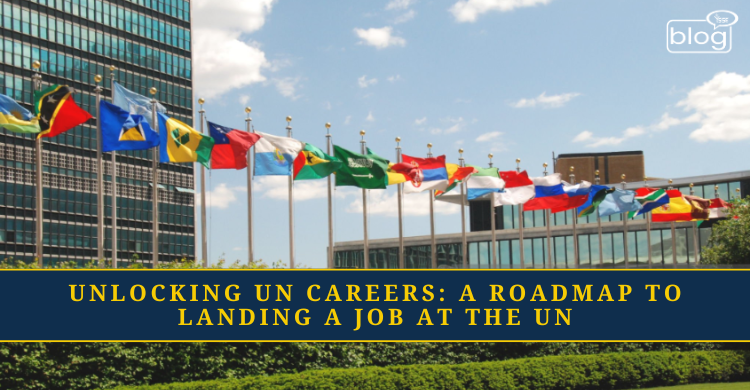The UN is a hard place to get a job and that is meant to be so. The United Nations needs smart, committed, risk-taking people. Strict standards for important, impactful work. You too can land a UN job.
Nearly 60% of all UN job applications inquire whether the applicant has experience “in the field” at some point. It only makes us stronger and gives better understanding. This allows one to develop an understanding of what these people want, as well as what they believe would help make life better for them. One way to look at the possibility of going into aid or development work leads you to start with a local NGO job in another country.
1. Contribute to an NGO locally:
An additional way to develop experience and demonstrate your interest in humanitarian or development work is through working with an NG0 (non-governmental organization) at home. Since they are usually smaller and less funded than the UN, the salary is lower, and there is not a legion of staff helping. It could be something in the fields of poverty alleviation, humanitarian aid, human rights, water and sanitation, or sustainable development.
The work of NGOs takes a similar shape to the types of things that are done in the United Nations, with those areas known as program delivery, communications, advocacy, and fundraising. More commonly, we see people move from NGOs in the UK or Australia to UN roles in Bangladesh or New York. You could begin with widely known NGOs such as Plan International, Save the Children, or Amnesty International.
2. Work with the UN as a JPO (Junior Professional Officer):
Most Junior Professional Officers (JPOs) hail from UN-contributing countries, not from the very developing nations where the UN operates. As a result, it is best to consult the list of countries that donate towards the JPO program. The applicant will participate in capacities co-funded by the UN and its governments. There is also an age limit that changes depending on the job, but you are called only if you work for a maximum of 32 years.
Despite the name, JPO roles are usually substantive, and JPOs commonly go on to have distinguished careers at the UN. A French JPO who was in New York for two years where he helped coordinate emergency responses to crises by the United Nations Development Program is a good example.
3. UN Consultant
Becoming a consultant for the UN can be a good entry point for some, but it also has its challenges. In practice, the UN writes contracts with consultants to work on short-term projects like this one performed more than a year ago, evaluating programs or providing expert consultation. One way is to work as a consultant, where one will have to become an expert in what they do and offer specialized services.
Consultants often perform work that is similar to what full-time staff members do, but don’t get the same benefits, such as health insurance or paid time off. Prospective consultants may opt to register with the roster of UN consultants or can watch out for specific consultancy opportunities posted on the respective UN or agency sites.
4. Register as a UN Volunteer:
Volunteers are recruited and mobilized by the UN for emergency response, peacekeeping, and development work. A lot of people who started as UN volunteers have gone on to have successful careers with the UN.
Volunteering is offered as home, overseas, or online work. Minimum eligible entry age, but no upper age limit Getting to know the Global Talent Pool on UNV. org If approved, projects will be sent via email Just over 2,000 UNV roles are available each year so there are many jobs to choose from. UNVs receive a living allowance and medical insurance, among other forms of support.
5. Apply for individual jobs at UN Job Portals
It is difficult to apply for UN jobs directly. This, of course, is not enough and is quite dangerous indeed if the person has no experience or knows other paths to reality. Many of the applicants will have experience at the UN or an NGO and be bilingual.
One good practice is to start applying for jobs in global UN sites like UNCHA, WFP, or FAO. And even if you do not get a reply, it will help to understand what roles are out there and how one can apply.
The results will not be immediate. This is the importance of consistency and adjustments. It is staying through it that brings success eventually. It is how one builds skills and experiences that are relevant to the target goal: building without compromising. This is the approach by which many people around the world got selected as UN alumni.
To read more blogs like this, click here.
Writer,
Ashura Tabassum Arshi
Intern, Content Writing Department
YSSE.

